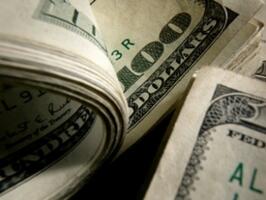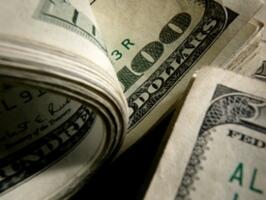Obama Campaign May Be Fooling Itself By Michael Barone
"Axelrod is endeavoring not to panic." So reads a sentence in John Heilemann's exhaustive article on Barack Obama's campaign in this week's New York magazine.

"Axelrod is endeavoring not to panic." So reads a sentence in John Heilemann's exhaustive article on Barack Obama's campaign in this week's New York magazine.

In the beginning, there was pump and dump. In the dot-com bubble of the late '90s, the stock-analyzing arms of investment banks would pump up a new stock's price with rave reviews.

It seems intuitive that a free market would lead to a "race to the bottom." In a global marketplace, profit-chasing employers will cut costs by paying workers less and less, and shipping jobs to China.

Alan Simpson let loose at a group of Californians who charged in a brochure that he and Erskine Bowles were "using the deficit to gut our Social Security." The former Republican senator from Wyoming sent the California Association of Retired Americans a characteristically colorful response, which I quote: "What a wretched group of seniors you must be to use the faces of the very people (the young) that we are trying to save, while the 'greedy geezers' like you use them as a tool and a front for your nefarious bunch of crap."

The ham-handed Barack Obama campaign attack ads on Mitt Romney's former firm Bain Capital have drawn a lot of ire from other Democrats.

For Mitt Romney, the president's greatest vulnerability seems to be that Barack Obama is no Bill Clinton -- and he is seeking to exploit that perception in his public speeches attacking the incumbent. On Tuesday, the presumptive GOP nominee drew the contrast for an audience in Iowa, harking back to a famous Clinton speech in 1996.

The entire debate is clouded by a refusal of political leaders to talk honestly about spending. The air is filled with talk of brutal spending cuts in financially troubled Europe, but Veronique de Rugy of the Mercatus Center, a pro-free market U.S. think tank, has shown that to be a lie.

Instinctively, we look for people's motives. We need to know whom we can trust and whom we can't. We're especially skeptical of business because we know business wants our money.

We recently saluted Leslie Sabo for giving his life to save fellow soldiers in Vietnam 40 years ago. Injured after shielding a comrade with his body, the Pennsylvanian grabbed his grenade and stormed the foe's bunker. He died in the explosion. For his selflessness, America awarded Sabo the Congressional Medal of Honor.

A surprising fact: Gamblers spent more last year at commercial casinos in Indiana than they did at non-Indian casinos in all but three other states -- not surprisingly, Nevada, New Jersey and Pennsylvania. The 11 casinos and two racinos (horse racing tracks with slots) are the Hoosier State's third-largest source of tax revenues.

In the run-up to this weekend's G-8 summit at Camp David, journalists have unfavorably compared European "austerity" with Barack Obama's economic policies.

We all think we know which states are the pivotal players in the Electoral College. The Crystal Ball's most recent look at the map showed that there are seven "Super Swing States:" Colorado, Florida, Iowa, Nevada, New Hampshire, Ohio and Virginia.

In the beginning, there was the Etch A Sketch.

For honoring his conscience on the issue of marriage equality, President Obama earned angry rebukes from all quarters on the right, including the Uncle Toms of the Log Cabin Republicans, who said he was "a day late and a dollar short"; teenage mom Bristol Palin, who mocked him for invoking his daughters in changing "thousands of years of thinking about marriage"; and 50-year-old virgin Ann Coulter, often engaged but never wed, who called his decision "a sign of desperation."

Mitt Romney has pulled a point or two ahead of President Obama in polls of likely voters. In polls of registered voters, Obama has the advantage. The president's job approval ratings are hovering in the upper 40 percent range, which suggests a close race.

We moderns seem determined to suppress all unhappiness with one exception: grief. The intense sadness following loss of a loved one still occupies a warm spot in our culture. We want that pain protected from the deadening analgesics of pharmaceuticals.
That explains the American Psychiatric Association's decision to retreat from a plan to categorize ordinary grief as an adjustment disorder. Some wanted to classify a response to significant loss -- deep sadness, insomnia, poor appetite, inability to concentrate, crying -- lasting more than two weeks as a depression rather than normal grief, drawing fire from both mental-health professionals and ordinary folk.

Is it panic time at Obama headquarters in Chicago? You might get that impression from watching events -- and the polls -- over the past few weeks.

When my wife was a liberal, she complained that libertarian reasoning is coldhearted. Since markets produce winners and losers -- and many losers did nothing wrong -- market competition is cruel. It must seem so. President Obama used the word "fair" in his last State of the Union address nine times.

The Victorian era gave birth to a very unpleasant custom called slumming. Parties of swells in London and New York would descend on impoverished neighborhoods as a form of entertainment. In addition to breaking up the tedium of their posh lives, the adventure made them feel superior.

Last week, I wrote about the standings in the presidential race and said it looked like a long, hard slog through about a dozen clearly identified target states, much like the contests in 2000 and 2004. Call it the 2000/2004 long, hard slog scenario.